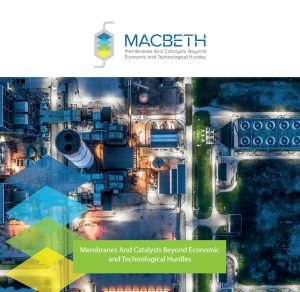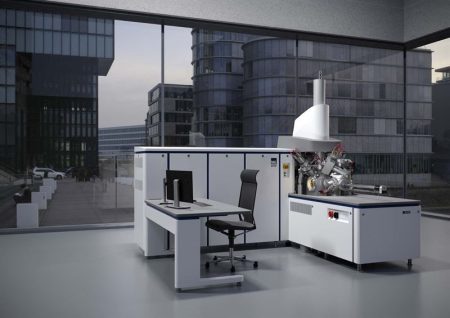
– Construction of the demonstration plant at the Marl location has started
– Technology saves CO2 and resources and is thus an important contributor to the European Green Deal
– Federal Ministry of Education and Research recognizes potential in success brochure
16 May 2023
Marl, Germany — The MACBETH technology project is taking shape and has received a positive interim evaluation from the EU Commission. Shortly after the start of construction of the planned demonstration plant in Marl, the Commission had the progress of the project evaluated. The auditors were very satisfied with the project, which was launched in 2020 and is the largest EU-funded project coordinated by Evonik.
The aim of MACBETH is to develop reactors that make important large-scale chemical reactions such as hydroformylation significantly more energy efficient. Membranes and catalysts play a central role in this (MACBETH stands for Membranes and Catalysts Beyond Economic and Technological Hurdles).
“The project is exceptionally well managed. It is very large and has ambitious goals that are being enthusiastically driven by the project leaders and their partners,” says Assessor Annette Juhr, professor of process engineering at Beuth University in Berlin. Accordingly, considerable efforts were made to avoid jeopardizing the project’s anticipated success, in light of the challenges posed by the coronavirus pandemic.
A central goal of the project is sustainability. Greenhouse gas emissions from important large-volume industrial processes could be reduced by up to 35 percent, with an increase in resource and energy efficiency of up to 70 percent. MACBETH thus makes an important contribution to the European Green Deal. This significant potential has also been recognized by the German Federal Ministry of Education and Research. On its behalf, MACBETH was included in a brochure of just ten success projects that are being funded under the broad EU framework program Horizon 2020.
“The project has already succeeded in bringing the technology of catalytic membrane reactors closer to industrial implementation,” explains Professor Dr. Robert Franke, project coordinator of the overall MACBETH project and head of hydroformylation research at Evonik. The mechanical completion of the demonstration plant is scheduled for Q3 2023.
In hydroformylation, unsaturated hydrocarbons – so-called olefins – are converted into aldehydes using synthesis gas – a mixture of hydrogen and carbon monoxide. Aldehydes, in turn, are important intermediates on the way to higher alcohols, organic acids or esters, which are then used, for example, as plasticizers in plastics or as surfactants.
Follow us on twitter



